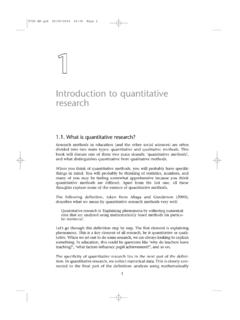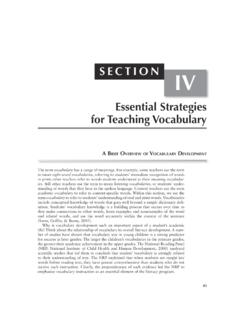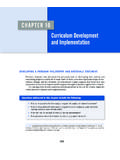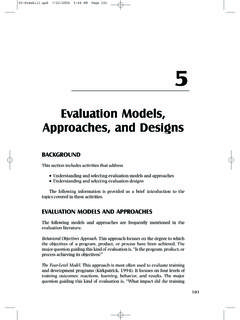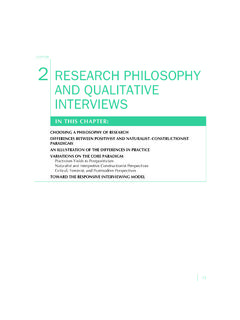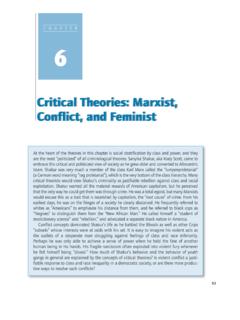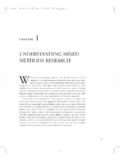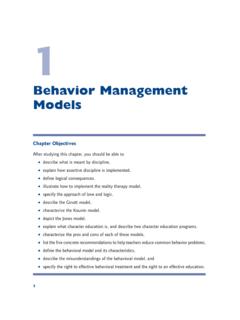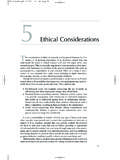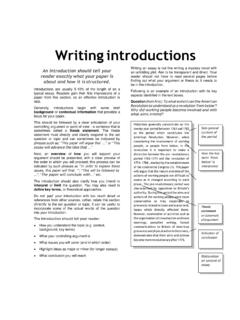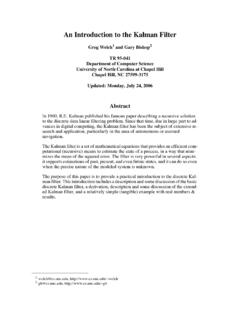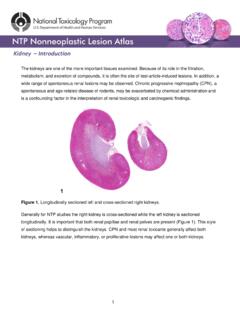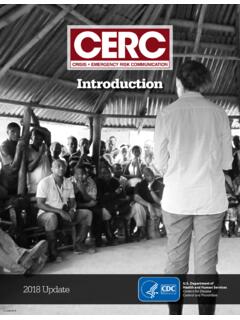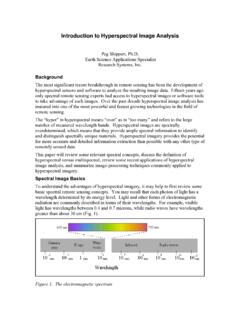Transcription of INTRODUCTION - SAGE Publications Inc
1 2 11 INTRODUCTIONThe Discipline and Practice of Qualitative ResearchNorman K. Denzin and Yvonna S. LincolnThe global community of qualitative researchers is mid-way between two extremes, searching for a new middle, moving in several different directions at the same Mixed methodologies and calls for scientifically based research, on the one side, renewed calls for social justice inquiry from the critical social science tradition on the other. In the method-ological struggles of the 1970s and 1980s, the very existence of qualitative research was at issue.
2 In the new paradigm war, every overtly social justice-oriented approach to research .. is threatened with de-legitimization by the government-sanctioned, exclusivist assertion of positivism .. as the gold standard of educational research (Wright, 2006, pp. 799 800).The evidence-based research movement, with its fixed standards and guidelines for conducting and evaluating qualitative inquiry, sought total domination: one shoe fits all (Cannella & Lincoln, Chapter 5, this volume; Lincoln, 2010).
3 The heart of the matter turns on issues surrounding the poli-tics and ethics of evidence and the value of qualitative work in addressing matters of equity and social justice (Torrance, Chapter 34, this volume).In this introductory chapter, we define the field of qualitative research, then navigate, chart, and review the history of qualita-tive research in the human disciplines. This will allow us to locate this handbook and its contents within their historical moments. (These historical moments are somewhat artificial; they are socially constructed, quasi-historical, and overlapping conventions.)
4 Nevertheless, they permit a performance of developing ideas. They also facilitate an increasing sensitivity to and sophistication about the pitfalls and promises of ethnogra-phy and qualitative research.) A conceptual framework for read-ing the qualitative research act as a multicultural, gendered process is then provide a brief INTRODUCTION to the chapters, con-cluding with a brief discussion of qualitative research. We will also discuss the threats to qualitative human-subject research from the methodological conservatism movement, which was noted in our Preface.
5 As indicated there, we use the metaphor of the bridge to structure what follows. This volume provides a bridge between historical moments, politics, the decolonization project, research methods, paradigms, and communities of interpretive History, Politics, and ParadigmsTo better understand where we are today and to better grasp current criticisms, it is useful to return to the so-called para-digm wars of the 1980s, which resulted in the serious crippling of quantitative research in education.
6 Critical pedagogy, critical theorists, and feminist analyses fostered struggles to acquire power and cultural capital for the poor, non-whites, women, and gays (Gage, 1989).Charles Teddlie and Abbas Tashakkori s history is helpful here. They expand the time frame of the 1980s war to embrace at least three paradigm wars, or periods of conflict: the postpos-itivist-constructivist war against positivism (1970 1990); the conflict between competing postpositivist, constructivist, and critical theory paradigms (1990 2005); and the current conflict between evidence-based methodologists and the mixed meth-ods, interpretive, and critical theory schools (2005 present).
7 2 Egon Guba s (1990a) The Paradigm Dialog signaled an end to the 1980s wars. Postpositivists, constructivists, and critical theo-rists talked to one another, working through issues connected to ethics, field studies, praxis, criteria, knowledge accumulation, 2 2 THE sage HANDBOOK OF QUALITATIVE RESEARCH truth, significance, graduate training, values, and politics. By the early 1990s, there was an explosion of published work on qualita-tive research; handbooks and new journals appeared. Special interest groups committed to particular paradigms appeared, some with their own second paradigm conflict occurred within the mixed methods community and involved disputes between indi-viduals convinced of the paradigm purity of their own posi-tion (Teddlie & Tashakkori, 2003b, p.)
8 7). Purists extended and repeated the argument that quantitative and qualitative meth-ods and postpositivism and the other isms cannot be com-bined because of the differences between their underlying paradigm assumptions. On the methodological front, the incompatibility thesis was challenged by those who invoked triangulation as a way of combining multiple methods to study the same phenomenon (Teddlie & Tashakkori, 2003a, p. 7). This ushered in a new round of arguments and debates over paradigm soft, apolitical pragmatic paradigm emerged in the post-1990 period.
9 Suddenly, quantitative and qualitative methods became compatible, and researchers could use both in their empirical inquiries (Teddlie & Tashakkori, 2003a, p. 7). Propo-nents made appeals to a what works pragmatic argument, contending that no incompatibility between quantitative and qualitative methods exists at either the level of practice or that of epistemology .. there are thus no good reasons for educa-tional researchers to fear forging ahead with what works (Howe, 1988, p.)
10 16). Of course, what works is more than an empirical question. It involves the politics of is the space that evidence-based research entered. It became the battleground of the third war, the current upheaval and argument about scientific research in the scholarly world of education (Clark & Scheurich, 2008; Scheurich & Clark, 2006, p. 401). Enter Teddlie and Tashakkori s third moment: Mixed methods and evidence-based inquiry meet one another in a soft center. C. Wright Mills (1959) would say this is a space for abstracted empiricism.
